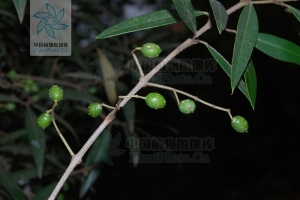 |
| Olives growing area in India: Rajastthan State |
Olive trees cultivation has now spread to many new places in the world including India. It is now prevalent in Australia, Argentina, Croatia and Chile. Spain continues to be the leading producer with Italy second. With the advances in technology, mechanical harvesting and other devices have reduced labour and made it more cost-efficient.
In India, Rajasthan is the location for the first experiment in olive cultivation. The company Rajasthan Olive Cultivation Ltd (ROCL) is a 3-way collaboration between the Rajasthan State Agriculture Board, Plastro Plasson of Pune and Indolive Ltd, all of which have equal shares. Plastro Plasson Industries (India) Ltd is a joint venture between Finolex Ltd of India and two Israeli companies and deals in micro-irrigation, while Indolive is an Israeli company which is partially funded by the Israeli government, which promotes techniques in agriculture.
Lior Weintraub, a spokesman for the Israel embassy has said, “A project such as this, where a new kind of tree is being introduced in a water-scarce environment, hinges on the irrigation system used. So the olive project is as much about drip irrigation as it is about transforming Rajasthan into a major olive grower. The main reason the project was considered for Rajasthan was the similarities in climate and cultivation problems in the state and Israel. However, there are major differences in soil and other factors which will have to be addressed.”
The Process
An agreement was signed between Israel and the Rajasthan state government in 2006 and the deal was finalized and a joint venture agreement was signed in 2007. A 30-hectare field in the small village of Basbisna some 160 km from the capital Jaipur, is the location for this experiment. The field tests had shown which variety could adapt itself best to the climate and soil of this region. A 3-year agricultural plan will introduce many crops from the Middle East and the Mediterranean to India and it is hoped that the country would be an exporter of olive oil by the year 2011.

Saplings of high-yielding olives just an inch in size were brought from Israel, grown to a height of 1.5 meters in nurseries and then transplanted to the fields here. The plants will be irrigated with the latest in drip irrigation technology, where the roots are watered directly and nutrients added along with it. This method saves 40% more water than the older method and has been the reason behind the high yield of 2.8 tonnes of olive per hectare in Israel, which they hope to duplicate in Rajasthan
The Future
The Rajasthan government is trying hard to get local farmers interested in olive cultivation. They are being informed about olive oil and its demand both in India and overseas. The low cost and the positive feedback have excited the farmers in the region. The olive trees have been planted in rows which are 7 meters apart, to enable groundnut cultivation in the land between the rows. This would help the farmers to start earning even before the olive trees begin to bear fruit. Olive trees take 3 and a half years to bear fruit and then they keep producing them for more than 500 years. The farmers in Basbisna and 6 other places where the pilot project has been initiated are now waiting for the trees to bear fruit, to see and sell their first olives.
As mentioned, the olives have already been bought by an Israeli firm, which is also setting up an oil pressing plant and is planning to sell the olive oil overseas. All stakeholders are also expecting a rise in domestic demand for olive oil with growing health concerns. This projected growth is a source of great hope to the hard-working local farmers and the ROCL.
There are however several challenges to be faced in this fledgling attempt to grow olives in Indian soil. In the Israeli desert, temperatures reach a high of 40 degrees Celsius, whereas in Rajasthan it can go up to 49 degrees. The searing heat is aggravated by strong, sultry winds, which can singe the delicate olive trees and destroy them. In the 7 olive plantations however, great pains have been taken to protect the trees from the strong winds. Special bamboo supports have been built for the trees together with sensors to monitor the health of each plant. The trees have also been planted on undulating land, which are encircled by tropical, evergreen forests, which would ensure additional protection from the heat and wind.
Comment: It seems than by future, olives&olive oil business will be moving towards Asia, Africa and America. Let´s see this year the results of these good experiments





